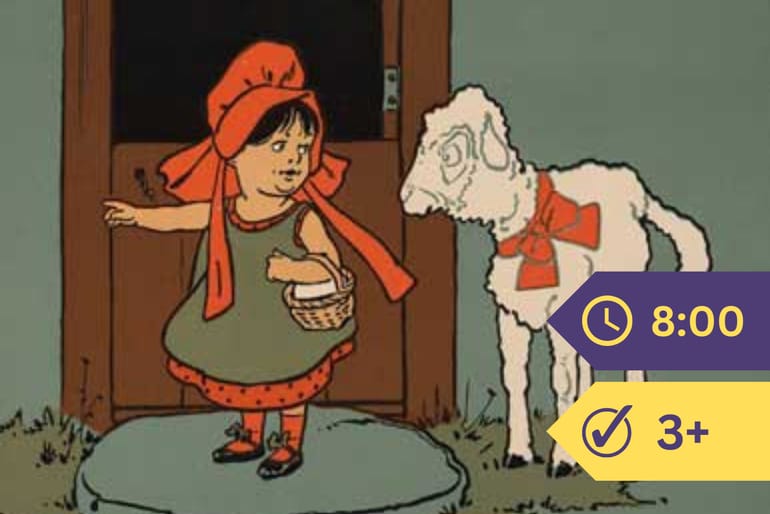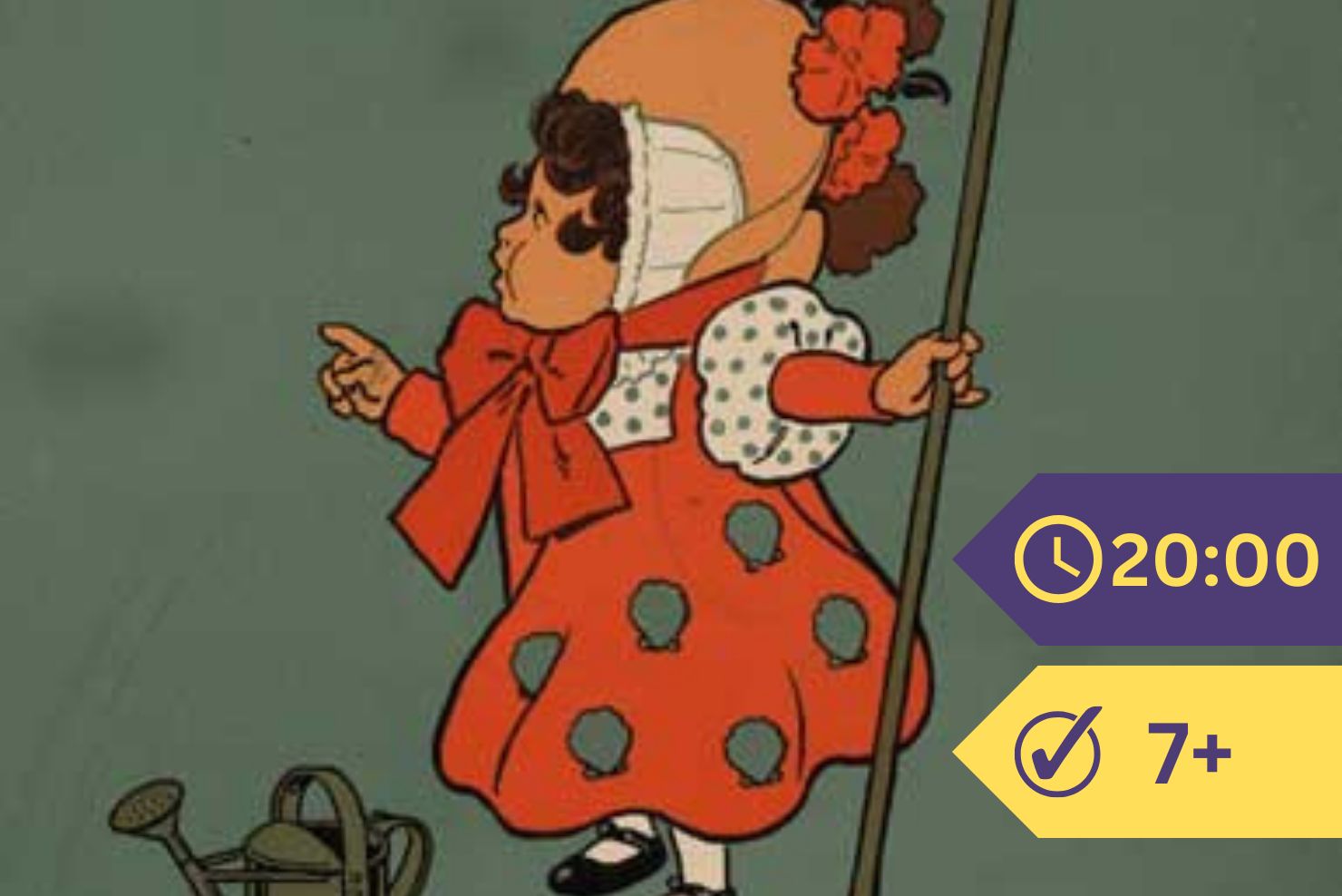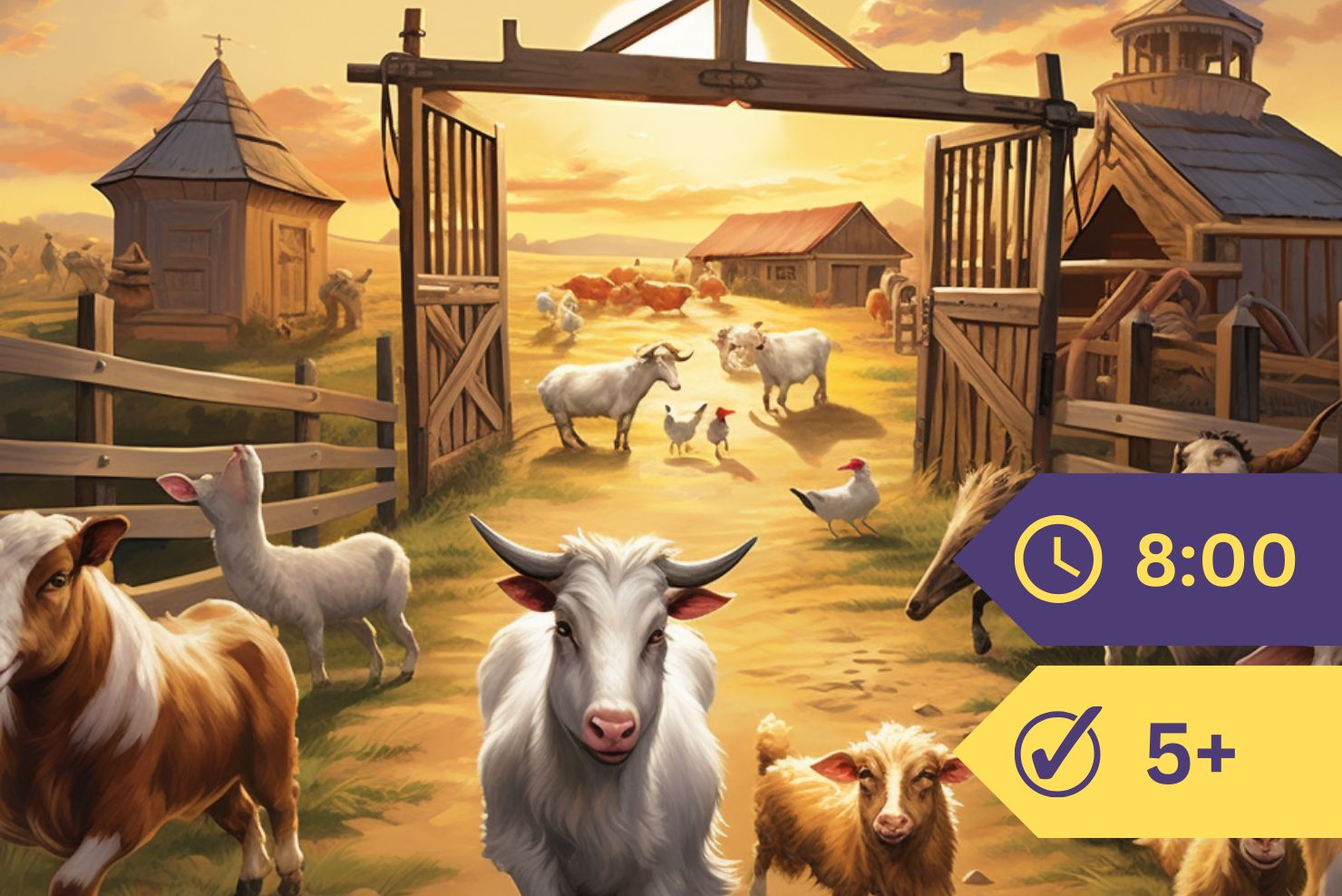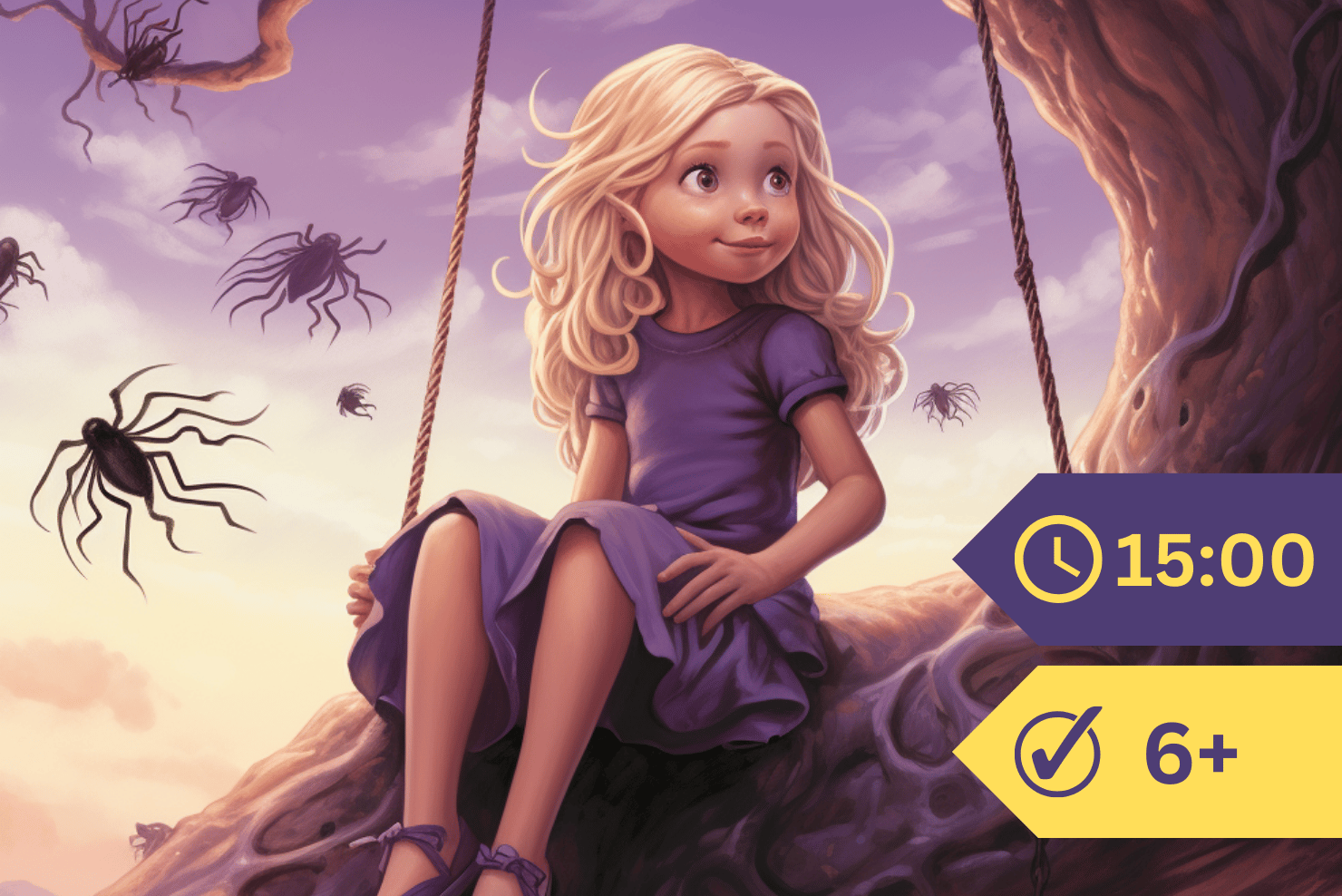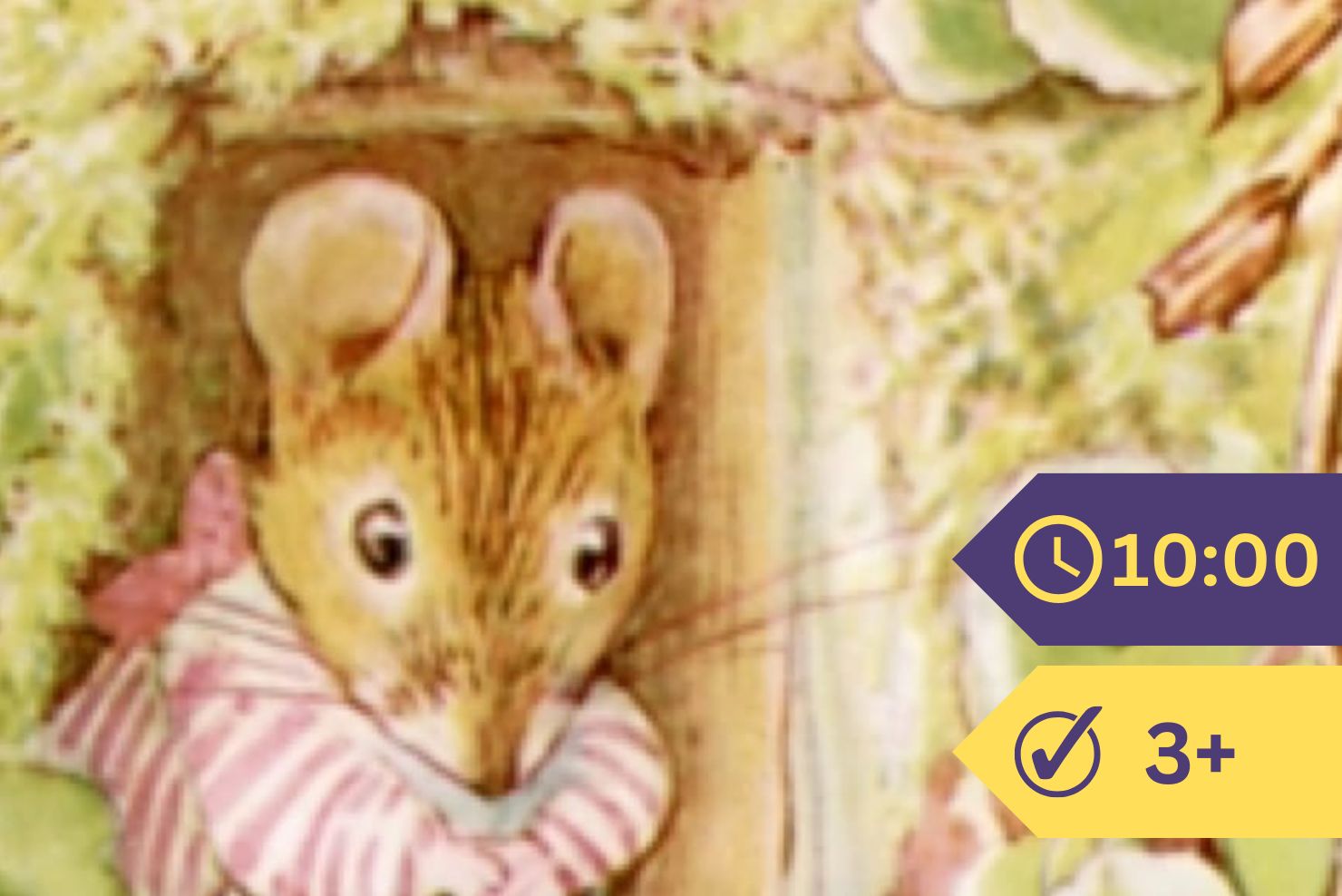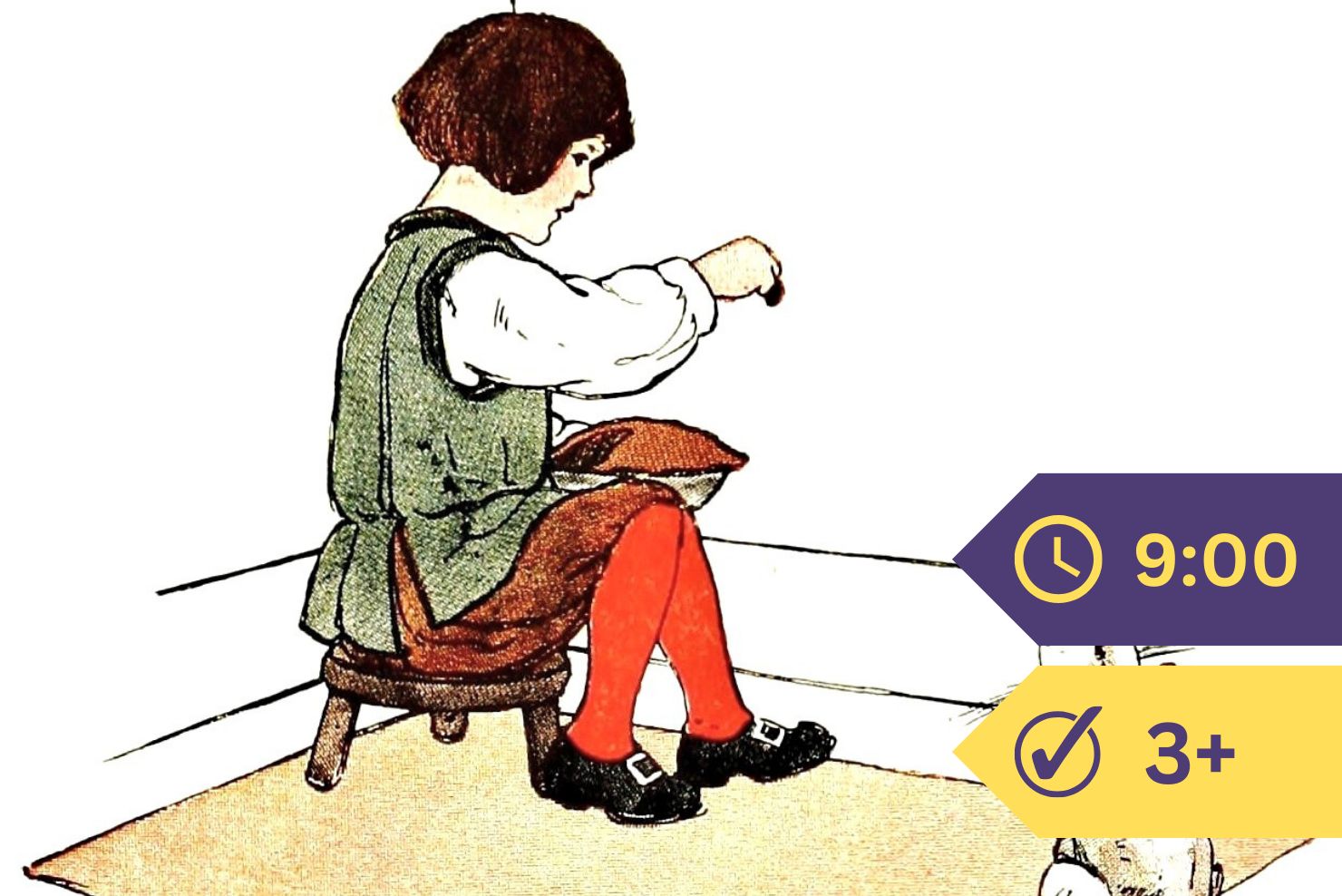One day Nurse Jane Fuzzy Wuzzy, the muskrat lady, was looking around the hollow-stump bungalow, behind pictures, under the piano, in corners and everywhere.
“What is the matter?” asked Uncle Wiggily Longears, the rabbit gentleman, “have you lost something, Miss Fuzzy Wuzzy?”
“No,” Nurse Jane answered. “I was just looking to see how much house-cleaning I must do. It will soon be Spring, and the bungalow must be made nice and clean, ready for Summer. There is quite a lot of dust behind the pictures and under the piano.”
“Bungalow-cleaning!” said Uncle Wiggily, sort of sad and solemn like. “I know what that means. No meals on time. No place to sit down, no place to hang your hat—nothing at all. I suppose I had better be out of the way when you turn my bungalow upside down to clean it.”
“I suppose you had,” agreed Nurse Jane. “Still, there is no hurry. I won’t start cleaning until to-morrow, or next day. But if you are going out now you might bring me something from the store.”
“What?” asked Uncle Wiggily.
“A scrubbing brush and a cake of soap,” answered the muskrat lady. “I’ll need them to clean the floors.”
“You shall have them,” promised Uncle Wiggily. Then off he started with his tall silk hat and his red, white and blue-striped barber-pole rheumatism crutch that Nurse Jane had gnawed for him out of a corn-stalk, and which Tommie Tinker’s father had mended for him, as I told you in the story before this one.
“I wonder if I shall have any adventures to-day?” thought the bunny uncle, as he hopped and skipped along through the woods. “I haven’t had one since I found Tommie Tinker’s dog.”
But Mr. Longears reached the store without anything having happened to him, and, buying the cake of soap and the scrubbing brush, back he started for his hollow-stump bungalow.
“Nurse Jane said there was no hurry,” spoke the rabbit gentleman to himself, “but I want to get the house-cleaning over with as soon as I can. So I’ll hurry back with the soap and brush.”
All of a sudden, and just as Mr. Longears was wondering if he would have time to call on Nannie and Billie Wagtail, the goat children, he heard a rustling in the bushes, and a voice said:
“Oh, dear! However did it happen? Oh, how too bad it is! You’re nothing at all like Mother Goose’s book says you should be. Oh, whatever am I to do?”
Uncle Wiggily looked around the corner of a tree, and there he saw a little girl, and beside her stood a little lamb, as black as a coal, or a barrel of tar. I don’t know which is blacker.
“Ha! This looks like trouble,” whispered Uncle Wiggily. Then: “That surely is Mary,” he said, out loud.
“Yes, I’m Mary,” spoke the little girl, “and I know you. Jack Horner told me about you, and how you helped him pull his thumb out of his plum pie. I wish you could help me.”
“What is the matter?” asked Uncle Wiggily. “I’ll help you if I can.”
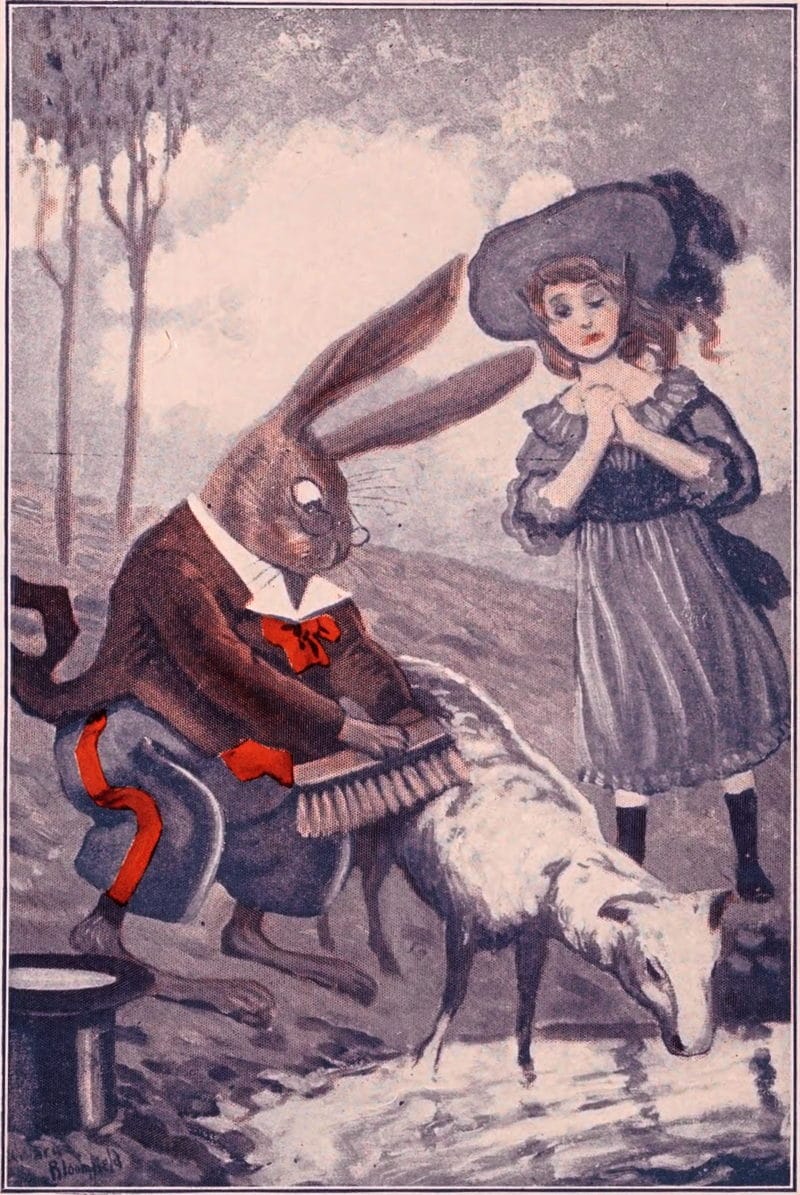
“It’s him,” said Mary, pointing to the little baby sheep. “You know how it goes in the book:
“‘Mary had a little lamb,
Its fleece was white as snow.
And everywhere that Mary went,
The lamb was sure to go.’”
“Yes, I know that,” said Uncle Wiggily. “But this can’t be your lamb. Instead of being white as snow, he’s black—as black as any crow.”
“That’s just the trouble!” said Mary, with tears in her eyes. “Oh, Lambie! How did you get your nice white coat so black?” she asked. “You can’t follow me to school that way; you know you can’t.”
“Ba-aa! No, I suppose I can’t,” spoke the lamb, sort of sad and lonesome like. “I didn’t mean to do it, but I went past a place where some men were cleaning out a chimney and the black soot blew from it all over me. I’m as sorry about it as you are.”
“It is too bad,” said Uncle Wiggily. “But nothing is so bad that it might not be worse.”
“This will be worse before it is better,” said Mary. “I suppose the only thing to do now is to take my lamb to the barber’s, who shaves a pig, and makes a wig. The barber can cut off the top part of the lamb’s fleecy wool and get down to the nice, white part. But if I do that I’ll be late for school. And the lamb must follow me there, you see, or it won’t be like the book. Oh, Lambkin! why did you do it?”
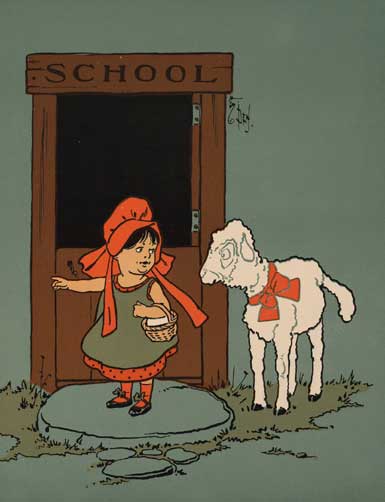
“I—I’m sorry,” said Mary’s little lamb. “But, please, don’t have my wool cut off. It’s too cold this weather. I’d shiver.”
“I must,” said Mary. “To make you white as snow, you know. I’ll have to have your wool cut.”
“No! you won’t have to do that!” cried Uncle Wiggily. “I know something better than that. Soot is only black dirt. It will wash off with soap and water. And, see here! I have some soap for Nurse Jane’s bungalow-cleaning and a scrubbing brush. Come on, Mary. We’ll find some water and give the lamb’s coat a good scrubbing with soap suds. We’ll see what that will do.”
“Oh, I’m afraid we’ll never get him clean,” sadly said Mary; “but it is very good of you to think of it, Uncle Wiggily.”
They found a nice little brook, and leading the lamb to it, Uncle Wiggily rolled up his sleeves and with the soap and scrubbing brush began to wash the black soot out of the fleecy wool of Mary’s little lamb.
Away and away scrubbed the bunny uncle, making a great suddsy lather. He rubbed it well into the fluffy wool. Then, when the soap suds were washed out, why, Mary’s lamb’s fleece was as white as snow! just as it ought to be.
“Oh, Uncle Wiggily!” cried Mary. “How good you are! Now my little lamb can follow me to school, no matter if it is against the rule. Thank you!”
Then away she ran, and the lamb followed after her, and Uncle Wiggily, pleased that he had done a kindness, took the rest of the soap and the scrubbing brush to Nurse Jane.

